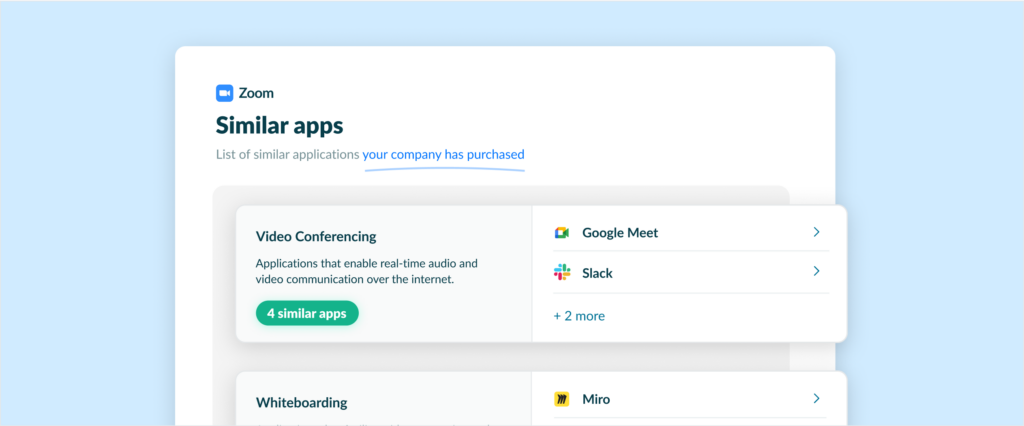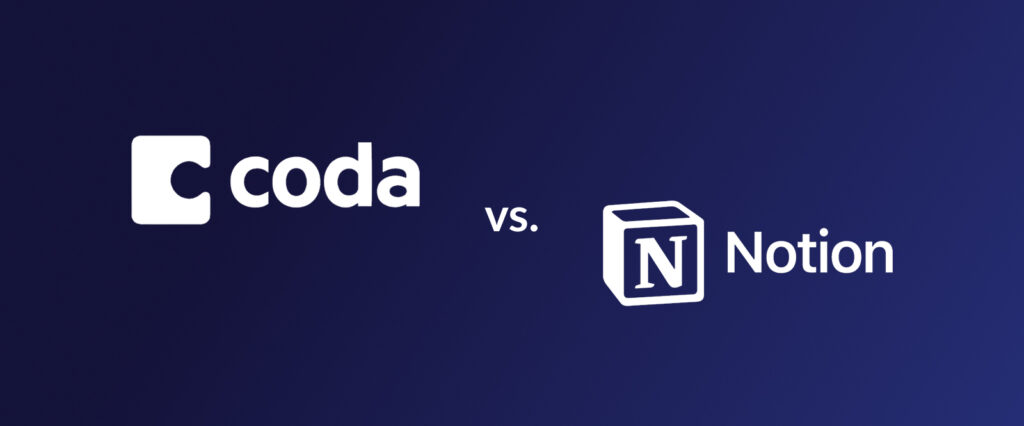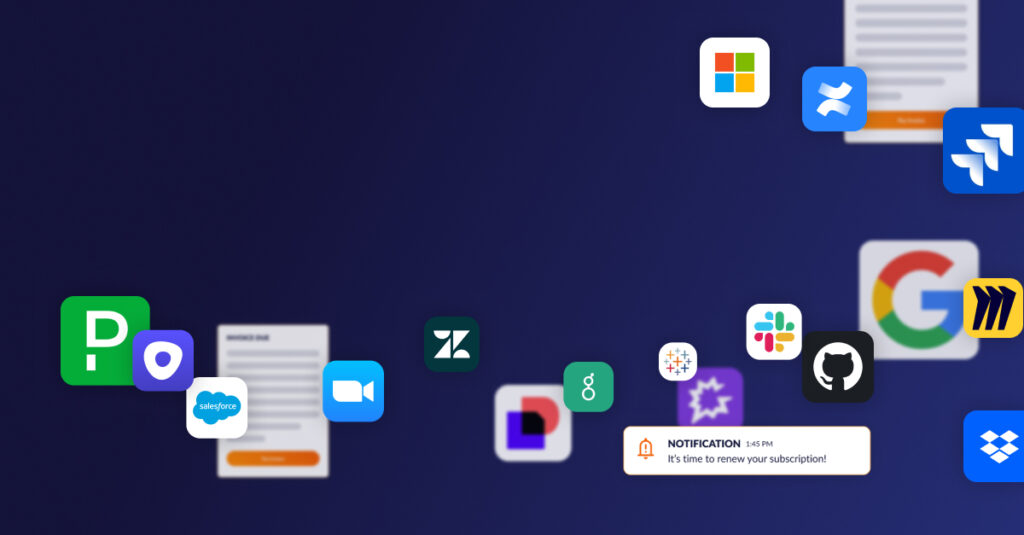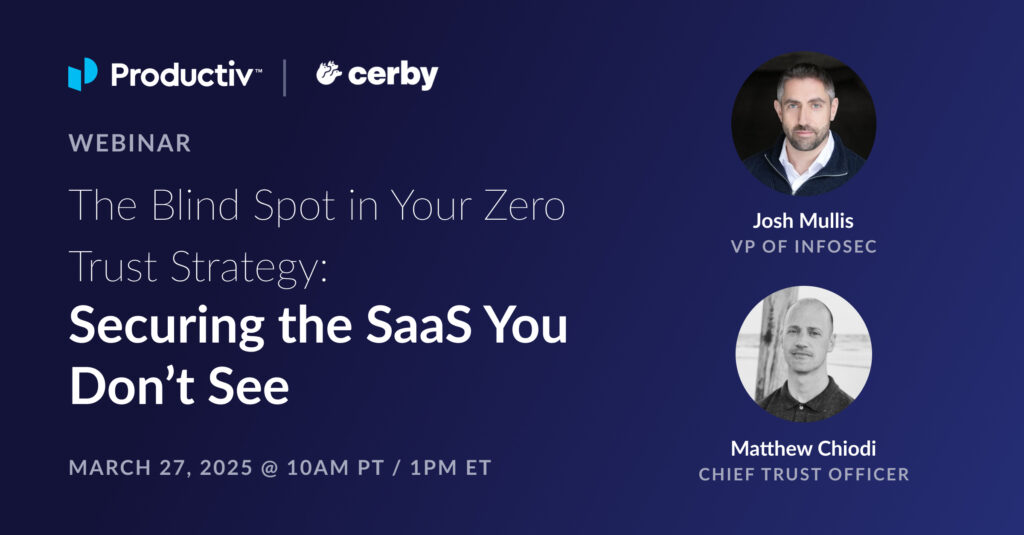
Procurement and IT can align to optimize SaaS costs with this framework
Procurement plays a critical role in driving cost optimization. And now, as companies meticulously review their budgets in the face of recessionary pressures, Procurement is in a key position to deliver these cost-saving business outcomes.
But where should you focus your time to drive the biggest impact? With the average company using an average of 342 SaaS apps, SaaS spend is a great place to start. Especially when up to 60% of SaaS licenses are underutilized, according to Productiv data. However, Procurement teams today face a variety of challenges when it comes to SaaS procurement.
Why can’t Procurement deliver effective cost optimization today?
High-performing Procurement teams need to work collaboratively with IT and across the business on software procurement and SaaS renewals. This starts with being on the same page as IT — from app consolidation to license renewals — and having insights for productive conversations with line of business app owners.
Spreadsheets slow down these important processes. They’re difficult to collaborate in and quickly become the source of stale or bad data. Without trusted data and shared insights, Procurement might want to go it alone and mandate cuts to reduce costs when a SaaS contract is up for renewal. However, this can strain the relationship with IT, who have to explain these cuts to business leaders and app owners. Additionally, cuts made without the right insights can negatively impact business performance.
What can Procurement do to align with IT on SaaS cost optimization?
By adopting a SaaS Management Platform, also called an SMP, Procurement and IT can jointly view vendor, contract, licensing, pricing, and usage information — including granular, feature-level usage.
With the right SaaS Management Platform in place, Procurement and IT can follow this cost optimization framework to continuously and proactively manage spend across their SaaS portfolio.
What is a SaaS governance framework?
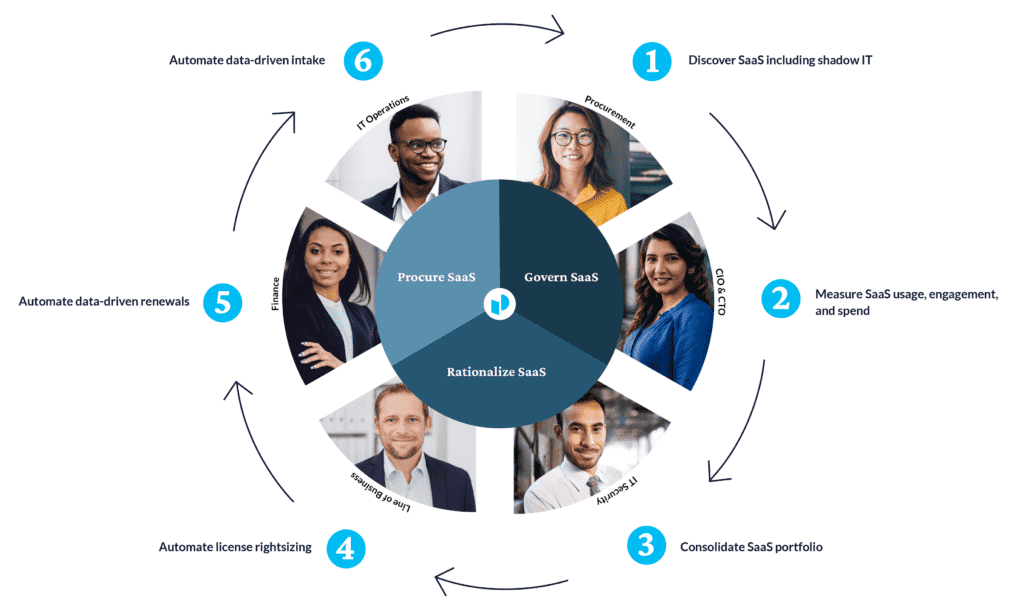
Governing SaaS
Line of business areas are buying apps or adopting free apps, often without IT or Procurement’s assistance, which creates a myriad of challenges down the line. Many of these purchases are expensed and not always with the right expense category. As a result, Procurement can miss them. Additionally, due to the number of free licenses for an app in use throughout the organization, the organization may be unexpectedly forced to switch to a paid plan, impacting technology budgets.
1. Discover SaaS including shadow IT
With an SMP, use 100s of out-of-the-box connectors (expenses, payments, network, SSO, and more) to identify existing and new apps, as well as spend not currently tracked.
2. Measure SaaS usage, engagement, and spend
View spend analytics by segments like employee, team, department, location, remote workers, and more, with your SMP of choice.
Rationalizing SaaS
When the same app is purchased multiple times across the business, it results in an increase of risk and wasted spend. Subsequently, purchases across the organization need to be combined into a contract at a lower price point. Apps with overlapping functionality should be examined for potential consolidation, too. All of these are difficult to manage with limited visibility into vendor spend from contracts and expenses by team and employee.
3. Consolidate SaaS portfolio
Determine apps to consolidate in similar categories via engagement insights and benchmarks with an SMP.
4. Automate license rightsizing
With an SMP, you can remove inactive licenses — which reduces risk — and downgrade license tiers based on employee app engagement data.
Procuring SaaS
With businesses relying on hundreds of SaaS apps, the constant renewals are difficult to manage effectively. Not to mention the slew of intake requests that bog down IT and Procurement teams. Today, the decisions to be made and actions to be taken across both of these processes require handfuls of siloed systems, countless meetings, and often lack the necessary data and insights.
5. Automate data-driven renewals
Use an SMP to automate renewal processes, orchestrate reviews and approvals, and use data and insights for a stronger negotiating position.
6. Automate data-driven intake
Streamline intake requests, understand what peers are paying, and save time when managing and fulfilling requests for new software and services through a SaaS Management Platform.
Where to go from here
See how Databricks used Productiv to help optimize costs by 35% across key business apps.
Hear how Procurement leader Maria Centeno uses Productiv to gain the upper hand in vendor negotiations and more.
Schedule a demo of Productiv’s SaaS Management Platform to see how a data-driven approach enables proactive management of your SaaS contracts and renewals.
About Productiv:
Productiv is the IT operating system to manage your entire SaaS ecosystem. It centralizes visibility into your tech stack, so CIOs and IT leaders can confidently set strategy, optimize renewals, and empower employees.
Learn more today